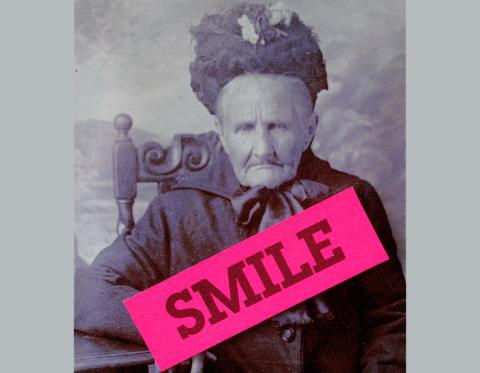The perils of positive thinking

The messianic nature of US presidential elections makes it unlikely that a winning candidate will promise anything but utopia. But we can't just will a better world into being with the power of positive thought alone. By Kevin McGeary.
A recent piece in the satirical newspaper The Onion stated that a “hand-written ‘NO-BAMA’ sign is currently the leading Republican candidate for next year’s election.” Like all of the jokes in said newspaper, it has some basis in reality. The Republican field is currently limited to the divisive (Bachmann and Gingrich), the uninspiring (Romney and Pawlenty) and the unready (Cain and Huntsman). But if the Republicans follow William F Buckley’s old adage, they will nominate the most conservative candidate who is electable. That candidate is Texas Governor Rick Perry.
Perry has created controversy over his positions on abortion, gay-marriage, and even the possibility of Texas seceding from the Union. But one thing about Perry that should also call into question his suitability for the Presidency is something from his pre-political career. It is something that he and I have in common. He spent his university summers selling books door-to-door in one of the most challenging internship programs in America. There is a strong argument to say that this is a good thing. Traipsing from town to town with nothing but a product to sell and a song in your heart is the epitome of the great American way, is it not? Surely the nation needs a return to the kind of rugged libertarianism that it was founded on. The eccentric Tennesseean company whose products we were selling instilled a set of values in us that would be beneficial to most professions. These beliefs included the one that says nothing is impossible, that if you work hard you will succeed, that positive thinking is always the answer.
Imagine a President who believes that nothing is impossible deciding what to do over Iran. Picture a man who genuinely believes that good old-fashioned elbow grease is the answer to everything, dealing with American complaints about an ever-dwindling production base and increasingly unaffordable healthcare (his home state of Texas has the highest rate of medically uninsured citizens). What if a man who believes that positive thinking is always the answer is put in charge of curtailing a Wall Street whose hubris brought America to the brink of meltdown?
Our summer-job involved selling for 80 hours a week on 100% commission, which is rather unusual, but former war-correspondent Chris Hedges pointed out that the afore-mentioned values are very typical in corporate America. He argues in his essay “The Illusion of Happiness” that believing positive thinking can solve the myriad problems that American workers now face, is no different to alchemy, a quack science. What is needed is grim realism, and the realization that blood, toil, sweat and tears are what is needed. Hedges goes on to argue that the positive psychology movement, is at its core, not about happiness, but about conformity: “The ideology justifies the cruelty of unfettered capitalism, shifting the blame from the power elite to those they oppress.”
Comedian George Carlin shrewdly noted that the positive psychology movement, instead of encouraging people to contribute to society in a positive way, was about aggressive acquisition. He suggested that most self-help books might as well change their title to “How to impose your will on others and screw them out of their money.” Instead, he suggested his own line of self-help books, which included such titles as: Eat Well, Keep Fit and Die Anyway; Tremble Your Way to Fitness; and How to Spoil Other People’s Fun. Unlike the actual positive psychology movement, Carlin at least acknowledges that reality cannot be bent and shaped at will, and it is dangerous to try.
The messianic nature of US presidential elections make it unlikely that a winning candidate will promise anything but utopia. But at some point, people will have to realise that the damaging illusion that economic, ecological and potentially societal meltdown can be avoided by simply working hard and keeping a smile on your face is no different to trying to fight off a tsunami with a baseball bat.
Originally published on opendemocracy.net. Licensed under Creative Commons.
Image top: alancleaver
